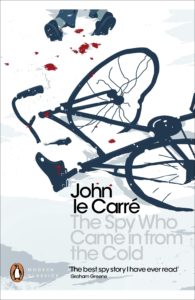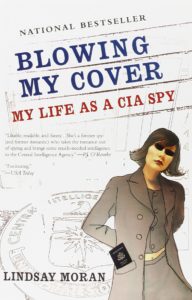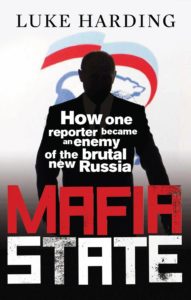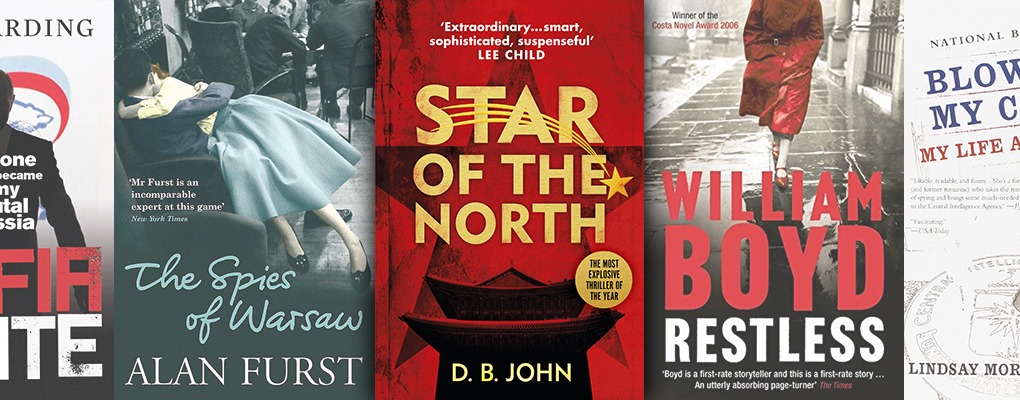Books
D B John: my top five spy thrillers
D B John, author of Star of the North, shares his all-time favourite tales of espionage, from both fact and fiction.
 The Spies of Warsaw by Alan Furst
The Spies of Warsaw by Alan Furst
Furst’s milieu is the world my parents grew up in: the lost Europe of the 1930s. The shadow of the cataclysm to come gives a doomed lustre to his casts of characters – Bulgarian émigrés, Jewish Bolsheviks, Parisian heiresses. This novel, set in Warsaw in 1937, has French military attaché Colonel Mercier collecting intelligence on Hitler’s military build-up. The source is a blackmailed German engineer and the Gestapo are already onto him. As ever with Furst’s novels, it’s detail and atmosphere that pull me in. A Maltese tramp freighter anchored in the fog off Ostend at dawn, a gleaming grosser Mercedes, with swastikas fluttering on the hubcaps, tearing along the Wilhelmstrasse. Furst must be the best living writer of historical spy novels.
 Restless by William Boyd
Restless by William Boyd
This novel is that rare feat of being both literary fiction and heart-in-mouth commercial thriller. Switching between the stories of Eva, a beautiful Russian exile recruited into the British Secret Service in 1939, and her daughter Ruth, a single mum in 1970s Oxford, Ruth slowly discovers why her mother trusts no one and has kept her past deeply hidden. I once asked Boyd at an author event what gave him the confidence to write four novels with female leads. His simple answer I took to heart: ‘I focus on character.’ The plot also casts light on a forgotten chapter of the war: Britain’s covert ops in the USA prior to Pearl Harbor, planting fake news stories to sway a reluctant American public to Britain’s cause.
 The Spy Who Came in from the Cold by John le Carré
The Spy Who Came in from the Cold by John le Carré
John le Carré wrote this lean, chilly masterpiece over a period of just five weeks in 1962, while holding down a full-time job. The story, about a British agent faking his defection to East Germany, permanently transformed espionage writing. Tired and shabby, the protagonist Alec Leamas is morally bankrupted by a life of lies and subterfuge. For the first time, our spies are shown exhibiting the same amoral pragmatism as our enemies. Before le Carré, Ian Fleming dominated the genre, and most readers’ idea of a British secret agent was a gentleman adventurer with impeccable tailoring.
 Blowing My Cover: My Life as a CIA Spy by Lindsay Moran
Blowing My Cover: My Life as a CIA Spy by Lindsay Moran
Why the CIA didn’t stop the publication of this hilarious exposé, written by a disillusioned former spy, is a mystery to me. After months of profiling and testing, Lindsay Moran’s dream comes true: she’s accepted into clandestine training. Except it’s not what she expected. She doesn’t mind the gruelling paramilitary exercises. It’s the psychology lessons that turn her off. A CIA field agent’s main role, she finds, is to recruit sources who will betray secrets. To induce them, agents are trained to exploit people’s vulnerabilities, blackmail them, manipulate their vanity, appeal to their greed. Moran even attends mock black-tie evenings, where trainees hone their social skills to identify and engage a ‘dissident journalist’, or a ‘disgruntled scientist’, all gamely played by the instructors, some of them burnt-out former agents hiding drink problems.
 Mafia State: How One Reporter Became an Enemy of the Brutal New Russia by Luke Harding
Mafia State: How One Reporter Became an Enemy of the Brutal New Russia by Luke Harding
Soon after taking a job as the Guardian’s Moscow correspondent in 2007, Luke Harding’s tenth-floor apartment is broken into. Nothing is taken, but his son’s bedroom window is left wide open. The message from the FSB, Russia’s state security force, is clear. Displease us again, and your son may have an accident. Soon, goons are following Harding in the street. Eavesdroppers are cutting off his calls. The reality of Putin’s Russia sinks in: the country is controlled by the FSB (successor to the KGB), and it finds hostile Western interference everywhere it looks. One fact about the FSB made me sit up: the pay’s lousy but those accepted into the force need never worry about the law. Knock over a pensioner while drink driving? Contract-kill a business rival? The state will protect you.



1 Comment
Please note: Moderation is enabled and may delay your comment being posted. There is no need to resubmit your comment. By posting a comment you are agreeing to the website Terms of Use.